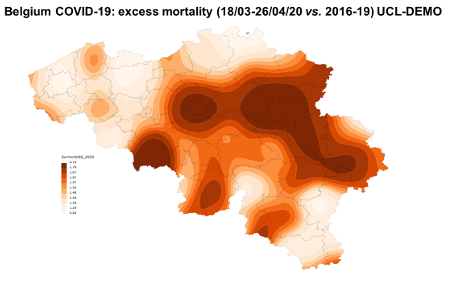Work Package 1: Inequalities in COVID-19 Mortality
WP1 analyzes the role of socio-demographic and -economic inequalities in COVID-19 mortality.
Who died as a result of the pandemic? Besides age and gender, how did place of residence, occupation, education or income shape the risk of dying from COVID-19?
Working in close synergy with other ongoing projects which monitor the broader long-term health-effects of COVID-19 in Belgium (notably the BELSPO-BRAIN HELICON project), EPIBEL will match individual all-cause mortality data (by age, gender, place of death, etc.) to the large-scale socioeconomic database available at DEMO-UCL (individual-level data from the National Register (demographic information including deaths from all causes, births and marriages) with data from the 2011, 2001, 1991 and – when available – 2021 censuses (socio-economic information on income and housing) and the civil register with death certificates (causes of death) since 1991.
Through demographic and spatial analyses EPIBEL will be able to characterize and map COVID-19 deaths according to a whole range of variables (age, gender, nationality, income, education level) across Belgium and measure the direct and indirect effects of COVID-19 on mortality for different parts of the population.
